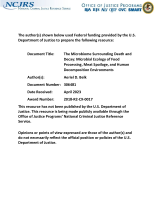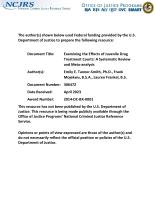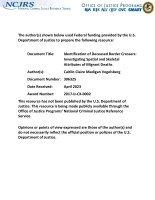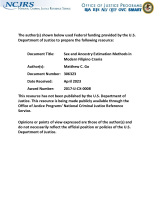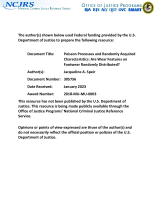The relations of inattention and hyperactivity to academic cheating in adolescents with executive functioning problems
Journal
Psychology in the Schools
Date Published
2022
Agencies
NIJ-Sponsored
Publication Type
Research (Applied/Empirical)



